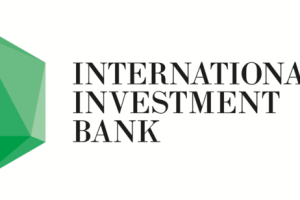Alătură-te comunității noastre!
Vezi cele mai recente știri & informații din piața de capital

Before the Coronavirus crisis, retail, corporate and private banks were already under pressure from Big Tech firms and Payment players. They needed to transform their technologies and cultures to create engaging digital experiences. With the effects of the pandemic, the need for transformation is now even greater.
„Retail, corporate and private banks were already under pressure to deploy new technologies and reshape their company cultures in order to compete with big tech firms and payment players. Now, as digital banking surges due to the coronavirus pandemic, this task is more pressing than ever” declared Pete Swabey, Editorial Director EMEA – Thought Leadership, The Economist Intelligence Unit.
With COVID-19 accelerating the digitization of banking, 45% of banking respondents say their strategic response is to build a ‘true digital ecosystem’ and integrate their self-built digital services and third-party offerings. AI will undoubtedly play a key role in accelerating this digital shift. Over three-quarters (77%) of respondents agree that unlocking value from Artificial Intelligence (AI) will be a key differentiator between winning and losing banks. And improving user experience through greater personalization ranked highest (28%) among the most valuable uses for AI.
Max Chuard, Chief Executive Officer, Temenos, said: “Banks were under huge pressure due to new competitors, ongoing regulation and slowing profit growth – these pressures have intensified as a result of the pandemic. The report highlights that senior banking executives believe that new technologies such as AI will have the greatest impact in banking in the coming years. As the digitization of banking continues, these new technologies can help banks fend off competitors and gain competitive advantage.”
The coronavirus crisis has focused the attention of banks firmly on new challenges. Bank branch traffic was already falling before the pandemic, and this trend will only intensify with society in lockdown: customers are unable to leave their homes while employees are working remotely or frequently absent due to illness. “Banks have planned for years for disaster recovery if their technology failed but have never planned for disaster recovery if their buildings closed,” says Chris Skinner, a leading influencer and champion of digitalisation in finance.
“This is the big lesson of the crisis.”
The lockdown will most likely accelerate the digitisation of banking, a sector which already faces intense competition from payment players, big technology and e-commerce firms. According to the latest global banking survey conducted by The Economist Intelligence Unit, 45% of respondents say their strategic response to this challenge is to build a “true digital ecosystem”. This aim to integrate self-built digital services and third-party offerings was cited more than any other response and has increased from 41% of respondents in 2019.
This article explores 3 central elements of banking digitisation:
1. where banks currently are in their digital journey;
2. what they are doing, not only to overcome challenges but also to increase user engagement through different technologies and channels; and
3. how they are seizing opportunities through reorganisation into more agile structures.
1. Where are banks currently in their Digital Journey
A large majority of respondents (66%, up from 42% in 2019) cite new technologies such as artificial intelligence (AI), machine learning, blockchain or the Internet of Things (IoT) as having a significant impact on the sector. This highlights the importance of these new tools in fending off the competitive threat posed by tech-driven, non-traditional entrants to the banking sector such as payment players
PayPal and ApplePay (cited by 50% of respondents globally), or big tech firms like Google, Facebook and Alibaba (34%).
Some early challengers are shifting their strategies from directly offering financial products to selling
their expertise to existing banks with bigger brands, more reach and higher capital. In fact, 84% believe that fintechs will continue to have a material cost advantage over traditional banks: investing in fintechs is a priority innovation strategy for over a quarter of respondents (26%), and even more so in the retail space (33%).
A majority of respondents (59%) agree with the statement that “the traditional branch-based banking model will be dead” by 2025, up from 44% in 2019.
2. Where are banks focusing their Digital Efforts?
For many, technology investment hinges on cybersecurity (35%), which reflects widespread concerns about data breaches. The development of AI platforms like digital advisors and voice assisted engagement channels is cited by 33% of respondents and cloud-based technologies by 27%. AI will
undoubtedly play a central role in the digital shift: 77% of respondents agree that unlocking value from AI will be a key differentiator between winning and losing banks.
Open bank hub initiatives that give customers access to third-party offerings remain important as respondents’ second preference (29%). This is followed by investment in fintech start-ups, which 26% of respondents cite as part of their innovation strategy. Although less of a concern than in 2019, 25% of banks are looking to participate in sandboxes to collaborate with fintechs and other technology providers to test new propositions.
3. How banks seized opportunities during the coronavirus pandemic
While the coronavirus pandemic has highlighted how quickly financial institutions need to adjust when the unexpected hits, it has also demonstrated many opportunities to be seized from a digital banking perspective. As lockdowns were introduced, bank phone services were overwhelmed in the UK and
the US. Operational processes struggled to incorporate government relief financial schemes, but some banks managed to demonstrate the real value of agility.
About the survey:
Now in its seventh year, the Economist Intelligence Unit report includes for the first time respondents from commercial and private banks, alongside retail banks. The EIU surveyed 305 global banking executives throughout February and March 2020 about the challenges banks are facing relating to the digitization of the sector, and the strategies they are deploying in response. Almost half of respondents (49%) were at C-Suite level. Respondents came from Europe (25%), North America (24%), Asia-Pacific (18%), Africa and the Middle East (16%), and Latin America (17%).
Full report available for download, here.
[ajax_load_more]









Vezi cele mai recente știri & informații din piața de capital